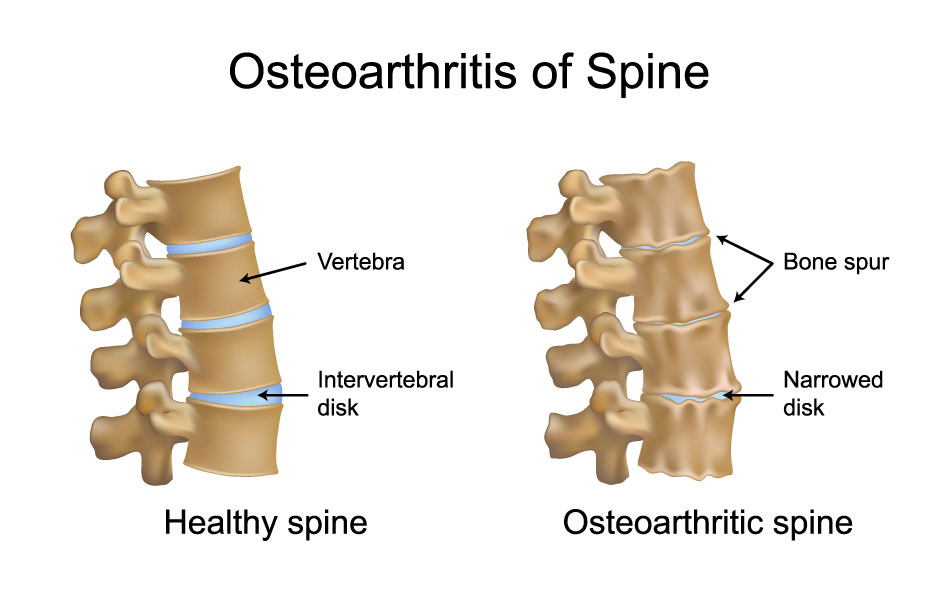Disc Osteophyte Complex, commonly known as degenerative disc disease, is a condition in which the intervertebral discs of the spine become damaged or weakened due to age-related changes. This condition not only leads to back pain but also affects a person’s range of motion and can even cause disability. Although this problem can occur in any region of the spine, it is most common in the lower back area.

Definition: What is DOC?
DOC stands for Denomination of Controlled Origin, and is a type of certification awarded to products that are produced in certain geographical areas within a country. It indicates that the product has been manufactured in an area with certain specific characteristics, including climate and soil type, which can affect the quality of the product. For example, Parmigiano Reggiano cheese must come from cows grazing on the pastures near Parma and Reggio Emilia in Italy. DOC certification ensures that customers know they’re getting a genuine product made with traditional methods in its place of origin.
In order to receive DOC status, producers have to meet strict criteria set by regulators and abide by regulations outlined by governing bodies related to European Union trade law. This includes restrictions on production methods as well as labeling requirements for products bearing the official logo or signature.
Symptoms of Disc Osteophyte Complex

Disc Osteophyte Complex is a condition that affects the spine, often resulting in severe pain and decreased mobility. It is caused by herniated discs which can cause a number of symptoms and complications. Symptoms of Disc Osteophyte Complex may include pain in the mid- or lower back, difficulty standing up straight, tenderness around the affected area, and numbness or tingling sensations in the arms or legs. Other signs may include stiffness and weakness in the muscles of the back or neck as well as an inability to move certain areas of the body. Additionally, those suffering from Disc Osteophyte Complex may experience headaches due to tension on nerves located around their spine.
Given these symptoms, it is important to seek medical attention right away if you believe you are experiencing any combination of these signs.
Causes of Disc Osteophyte Complex
Disc Osteophyte Complex is an umbrella term used to describe a combination of conditions affecting the spine. This condition results in a narrowing of the spinal canal, which can cause pain and discomfort. Symptoms of Disc Osteophyte Complex can range from localized pain in the lower back to radiating pain that travels down one or both legs. The exact causes of Disc Osteophyte Complex are not yet known, but medical experts believe it is caused by a combination of factors including age-related degeneration and trauma.
Age-related degeneration refers to changes that occur with aging such as thinning of discs, wearing off cartilage and weakening ligaments. Trauma is also believed to be a contributing factor since injury can damage the spine and lead to symptoms such as herniated disc or spinal stenosis.
Diagnosis and Treatment
Disc Osteophyte Complex is a common condition that causes back pain and discomfort. It occurs when the discs in the spine compress and become weakened due to age or other factors, leading to growths around the vertebrae called osteophytes. These can cause nerve root compression or spinal stenosis which can lead to severe back pain. The Pain Doctor near me specializes in diagnosis and treatment of Disc Osteophyte Complex.

The diagnosis of Disc Osteophyte Complex involves physical examinations, neurological tests, imaging tests such as an MRI scan, CT scans and X-rays. These help doctors accurately diagnose any underlying conditions like arthritis, spondylolisthesis or spinal stenosis that may be causing the disc degeneration and formation of osteophytes.
Prevention of Disc Osteophyte Complex
Disc Osteophyte Complex, or DOC, is a common cause of chronic lower back pain. It occurs when bony growths, known as osteophytes, form along the vertebrae in the spine or discs. These growths can increase pressure on nerves and other structures within the spine, leading to severe pain for patients.
Fortunately there are several options for preventing and treating DOC-related back pain. Doctors specializing in spine treatment can provide personalized care plans that may include physical therapy, medications such as nonsteroidal anti-inflammatory drugs (NSAIDs) or corticosteroids injections to reduce inflammation and relieve pain. Surgery may be an option for more severe cases of DOC.
Conclusion
Disc osteophyte complex (DOC), also known as cervical spondylosis, is a condition that affects many individuals with back pain in North Richland Hills. DOC occurs when the discs of the spine become degenerative and protrude outward, compressing the adjacent nerve roots. This compression can lead to inflammation of the surrounding tissues, leading to discomfort and pain. Fortunately, there are a number of treatments designed to reduce symptoms of DOC, including physical therapy, medication, and minimally invasive procedures such as steroid injections or radiofrequency ablation.
The ultimate goal for those suffering from disc osteophyte complex is to improve quality of life through symptom management. A person’s individual treatment plan should be tailored based on their unique medical history and current physical condition.

